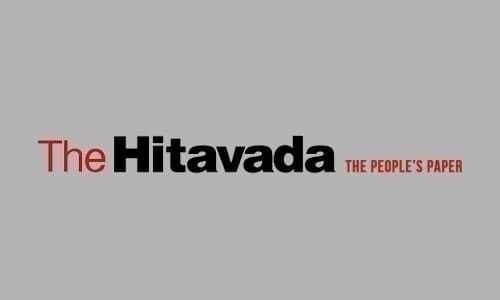US Vs Russia In Desh
| Date :29-Dec-2022 |

By ASHIS BISWAS
ONCE more, Russia and the United States of America are embroiled in a sharp diplomatic face-off over recent developments in Bangladesh, as the country braces up for its bitterest general elections in January 2024. An unorthodox war of words has broken out between Russian and American diplomats in Dhaka, with their embassies criticising each other’s role during the present tension-packed pre-poll run up.
Over five decades ago, the then Soviet Union and the US as major powers had supported the pro-secession Awami League and the ruling Pakistani Army establishment respectively, during the Bangladeshi civil conflict seeking independence. On that occasion, Western support could not save Pakistan from a comprehensive defeat. The joint Indo-Soviet support for the Bangladeshi liberation struggle had triumphed decisively.
Fifty-odd years on, there is still no basic change in their respective stands: As 2022 comes to its end, Russia still backs the ruling AL while the US and Western bloc countries, if their recent statements on Bangladesh matters are any indication, are firmly supportive of Opposition parties. It is common knowledge that among senior Opposition leaders in Bangladesh, there still remain people who had supported Pakistan, not the AL.
The controversy started on December 15 with the Moscow Foreign office spokespersons criticising the partisan coverage of the Ukraine war in the Western mainstream media. They denounced the active involvement of the US-led bloc of countries in prolonging the war by helping Kyiv financially and materially.
On Dec 20, the Russian embassy in Dhaka issued a similar statement on Ukraine developments without naming the US, but generally targeting Western policies.
To this, the US embassy in Dhaka responded through a brief but pointed social media tweet, questioning Russia’s role in the Ukraine war. It questioned Russian tactics against Ukraine, say observers, as the initial Russian statement had urged upon Western powers not to interfere in the internal affairs of other countries -- a diplomatic practice Russia had never violated, according to Moscow. The very next day, Russians responded through a tweet, a satiric cartoon lampooning Western leaders and their policies in different countries.
The Russian embassy also received details of an official Moscow daily foreign policy briefing, wherein official spokespersons had commented at length about the recent US role in Bangladesh developments. Dhaka-based analysts and media commentators indicated that Russian Foreign office mandarins had decided to adopt a more proactive role in international media coverage. According to information so far available from various sources, Moscow has drawn up a list of friendly and unfriendly countries. Russia would expose growing US interference in the internal affairs of other countries.
If necessary, Russians would announce their support for leaders/countries targeted by the West, on a more regular basis. Russia would no longer remain sidelined in the ongoing war for more factual information as to what exactly was happening in Ukraine. Western mainstream media coverage consistently presented a biased, warped political narrative.
Thus in Bangladesh, referring to recent US complaints about the alleged harassment of its envoy Mr Peter Hass, during his visit to the Dhaka residence of ‘disappeared’ BNP leader Sajedul Islam Sumon, the Russian Foreign office found nothing unusual in the matter. For some time now, the US-led Western countries had been constantly criticising/ pressuring/ pulling up the present ruling party in Bangladesh, almost dictating to Dhaka what should be done in the present situation, especially with Opposition parties . On its part, Russia had never adopted such practices nor would it support them in future.
For the record, Haas, investigating allegations against the AL, had gone on a fact finding mission to Sumon’s house a few days ago. However, some local demonstrators gathered and asked him to probe the massive atrocities against Bangladeshi secular intellectuals and opinion makers during the seventies as well. He left the area and returned to the embassy, reporting his experience to higher authorities in Washington.
A US foreign office spokesperson from Washington rang up Shahriyar Alam, Minister of state for Foreign Affairs, Bangladesh, to register a protest against what had happened. The US urged upon Bangladesh to be more careful in ensuring the democratic rights of Opposition politicians during the run up to the next elections and ensure conditions for a free and fair poll. Moreover, the Government in Bangladesh must also ensure the total safety and security of US citizens.
Earlier, Bangladesh Foreign Minister Dr A K Abdul Momen, commenting on the incident concerning Haas, had told media that the matter was ‘nothing very serious.’ Haas had spoken to him and received a fair hearing. There was no reason to suppose that relations between the US and Bangladesh would be affected in any way.
However, judging from the phone call from Washington to Alam, US authorities were clearly not willing to treat the matter as insignificant---all the more so as such diplomatic moves come in the wake of a recent advisory issued to US citizens in Bangladesh, urging upon them to be very careful in their movements in the country.
Bangladesh authorities feel such displays of caution are being somewhat overdone by the Americans, considering the existing warm ties between Washington and Dhaka, with no major bilateral irritants. (IPA)